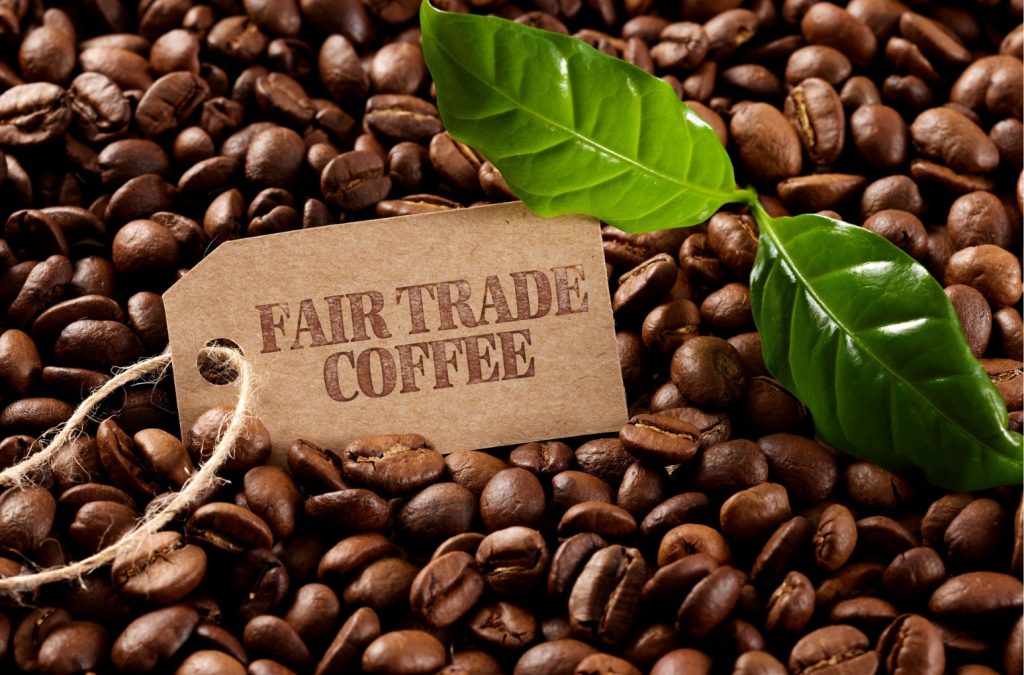As the leaves begin to fall and the nights grow darker, we turn to cosy beverages to keep us warm even on the frostiest days. Coffee chains encapsulate the flavours of the seasons in a ceramic mug, and customers drink it up! But where coffee beans meet syrup and sugar, have you ever stopped to consider that maybe the infamous pumpkin spice latte may not be so nice after all?
When placing an order at our favourite coffee shop, it is easy to get swept away by the different variations of milk or the limited-edition menu – we grow distracted. Have you ever thought about if your coffee order is sustainable? This means thinking beyond using your travel mug in place of a to go cup (although we would still encourage you to do this 😊) and goes straight to the source, coffee beans.
Is coffee sustainable?
To put it simply, it is complicated, almost as complicated as some of our coffee orders! The cultivation of coffee is a complex process which has many steps before it can reach its full brewing potential. It can take 3-4 years before it can even be considered for transportation for mainstream use. So no, this whole process is not inherently sustainable, here is why:
- Coffee cultivation can and does change drastically due to climate change as specific temperatures are needed for the beans to flourish. It is predicted that by 2050 (a major date for climate change), land suitable for coffee cultivation will shrink by 48%.
- Coffee is a large contributor to carbon emissions, especially if you prefer your coffee with greater proportion milk to water to espresso. The carbon footprint here considers transportation, roasting of the beans, packing and even brewing.
Did you know that a regular latte produces nearly four times as much carbon as a black coffee? By adding dairy as a component to your coffee the carbon footprint of milk cultivation must also be considered in its environmental impact.
- The clearing of forests (deforestation) often occurs to make space for coffee plantations. Not only does this release carbon into the atmosphere, but it also destroys the habitats of animals and wildlife living within, displacing them or leading to their deaths. There is a direct link between deforestation and the extinction of species.
- Fertilizer used to encourage the growth of coffee plants is often predominantly nitrous oxide, a harmful greenhouse gas.
Did you know that Nitrous oxide is almost three hundred times stronger than CO2?

Is it still complicated?
Well, no, it does not have to be! When we consider sustainable living, it is easy to get swept away and think that to be sustainable we must cut everything out of our lives or spend lots of money and time most of us do not have. However, by implementing little swaps here and there it can become less daunting overtime and become habitual to think sustainably. Here are some ways that can make our coffee drinking rituals more sustainable and still get that caffeine fix:
- Look for a ‘Fairtrade’ icon. This certification ensures that coffee you are drinking is both environmentally and ethically sourced. Fair trade practices ensure the protection and fair treatment of farmers and workers involved in the coffee cultivation process. As coffee is often grown in developing countries, the people that live their often rely on it for their livelihood. By buying fairtrade you are supporting their welfare and sustainable farming methods.
Tip: Check to see if your favourite coffee shops and chains are brewing Fairtrade coffee the next time you visit!
- Have you considered going organic? Organic coffee has its benefits it removes the harmful fertilizers and pesticides used during the cultivation process. Not only is this better for the environment but also for your health.
- Take the time to educate yourself about coffee chains/brands, who they support and why. You may not realise but large coffee chains, especially in recent years, have been scrutinised for their supply or support of certain countries going through political turmoil or not supporting certain movements such as Pride. It is important to consider when purchasing your drink, what company you are financially supporting and if this aligns with your values.
Tip: Local independents are often more environmentally and socially sustainable overall 😊
Some key takeaways to think about the next time you go to order your coffee of choice, is it fairtrade? Is it organic? Who am I supporting?
Thanks for reading!
By Madeline Polston, SGO Project Officer
Check out our sources:
 Sustainability
Sustainability Bethany Climpson
Bethany Climpson 189
189


